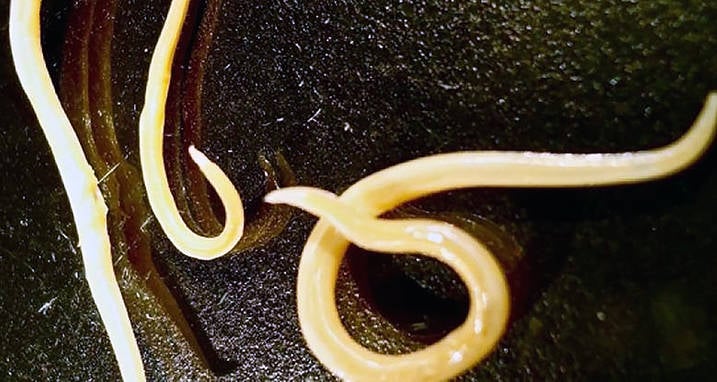30,000-Year-Old Worms Successfully Unfrozen And Reanimated

The Siberian TimesThe two nematode worms after they’d been thawed.
Earlier this year, two prehistoric roundworms — one 42,000-years-old and another 32,000-years-old — were miraculously brought back to life in Petri dishes.
A team of Russian scientists worked together with researchers from Princeton University’s Department of Geosciences to analyze 300 prehistoric worms and find just two that contained viable nematodes.
“We have obtained the first data demonstrating the capability of multicellular organisms for longterm cryobiosis in permafrost deposits of the Arctic,” their report read.
Both of the worms were found in permafrost in the frigid Yakutia region of Russia near Siberia. The researchers then placed the worms in a 20-degree Celsius culture with agar and given E. coli bacteria as food in order to revive them.
“After being defrosted, the nematodes showed signs of life,” the report said. “They started moving and eating.”
Now, they are living, eating, and moving for the first time since the Pleistocene Epoch. The worms (both females), were resurrected in Moscow at the Institute of Physico-Chemical and Biological Problems of Soil Science in Moscow.
“Our data demonstrates the ability of multicellular organisms to survive long-term (tens of thousands of years) cryobiosis under the conditions of natural cryoconservation,” the report read. “It is obvious that this ability suggests that the Pleistocene nematodes have some adaptive mechanisms that may be of scientific and practical importance for the related fields of science, such as cryomedicine, cryobiology, and astrobiology.”
In a truly exciting piece of science news, these worms are now considered the oldest living animals on the planet.





